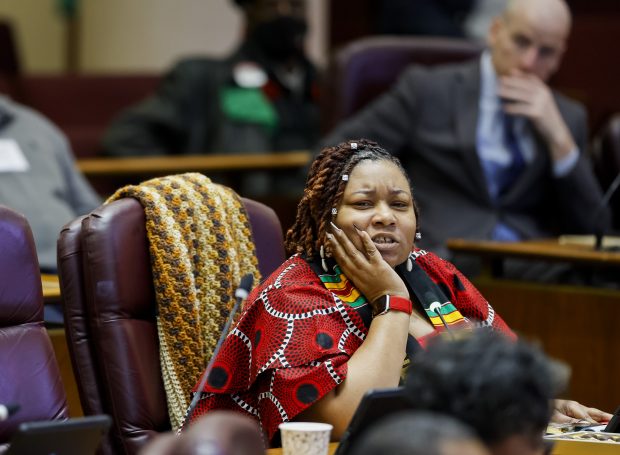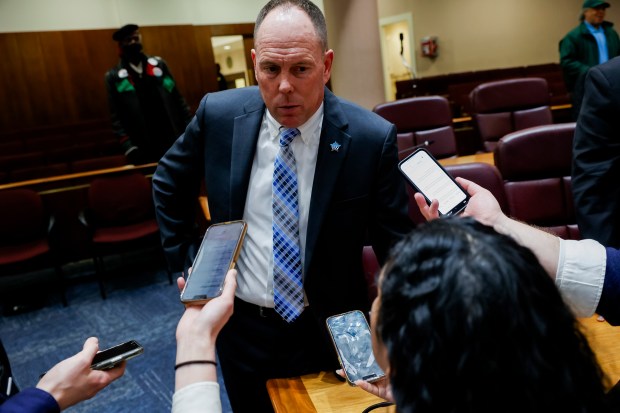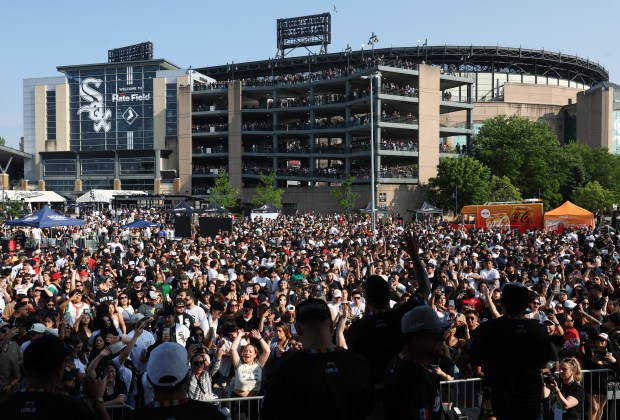Chicago dollar stores will face new restrictions curtailing where they can build after aldermen passed an ordinance targeting their cleanliness and effect on food deserts Wednesday.
The City Council voted 42 to 7 to pass the so-called “small-box retailer” ordinance, which blocks dollar store companies from opening within one mile of pre-existing locations and requires the stores to display placards with maintenance and emergency information.
The measure will inhibit the dollar stores’ strategy of “over-saturating” neighborhoods and force the companies to take better care of their properties, sponsor Ald. Matt O’Shea, 19th, said.
“When a dollar store comes into a neighborhood, they undercut other retailers, especially grocery stores … until a dollar store is a community’s only option, exacerbating our already very serious food desert problems,” O’Shea said.
The restrictions faced stiff resistance from dollar store operators, who said the mile radius amounts to “essentially a moratorium” on new stores and will not help create access to healthy food. An earlier version of the ordinance included a larger two-mile radius.
Lobbyists representing the dollar stores operating in Chicago – Dollar Tree, Dollar General and Family Dollar, which according to O’Shea have 149 locations across the city often concentrated in minority communities — have tried to swing aldermanic critics’ votes since the ordinance was first introduced in October with broad support.
But O’Shea argued Wednesday the companies had refused to negotiate in good faith and make concessions. He accused them of pulling money from and harming poor communities while racking up over 3,300 code violations since 2017, including for long-expired baby formula and over-charging customers.
“I don’t like getting (lied to). I don’t like getting my chain yanked,” O’Shea said of the companies’ negotiating strategy, before apologizing to Mayor Brandon Johnson for using an expletive on the council floor.
Dollar Tree, which owns Family Dollar, offered to fly in its CEO and threatened to sue the city in a last-ditch effort to curb the legislation before it passed, O’Shea said after the vote.
“This isn’t a struggling mom and pop trying to stay afloat. This is a Fortune 200 company. This is a hedge fund-owned company. Make the investments,” he said.
Ultimately, the resolution saw little pushback on the council floor, with no aldermen speaking against it. Several aldermen shared complaints about cleanliness, safety and unfairness at the stores.
Ald. Jeanette Taylor pushed back on calls to delay the vote, saying it was too late for the dollar store operators to change on their own. She recalled her daughters being repeatedly robbed at gunpoint while they worked at a Family Dollar.
“What would you say to me if my daughter had gotten killed?” she said. “Our community needs this store, but not to the point where we are compromising who we are and accepting less.”
Dollar Tree argued the ordinance will make it impossible for its stores to relocate in a statement Wednesday.
“It will bring more harm than help to the very communities it claims to support by limiting the flexibility to improve stores and provide new offerings to people in these communities,” the company said.

The City Council also voted Wednesday to require the Chicago Police Department conduct a citywide staffing analysis. The ordinance could lead to widespread changes to where and when police are deployed.
Similar relocation efforts have been squashed amid heated debates over who loses and gains officers, most recently when former Superintendent David Brown called a University of Chicago Crime Lab analysis “lacking” and eventually left office without completing his own promised evaluation.
The council also passed a series of costly city settlements totaling $4.3 million. The most expensive settlement, a $3.25 million deal, was awarded to the family of Martina Standley.
Standley was hit by a police cruiser in 2019 as she touched the car during what family described as a mental health crisis. As the police car accelerated into Standley, she was knocked to the ground and suffered a traumatic brain injury that her physician testified led to her death three years later.
The council also approved Alfonzo “Randy” Conner Jr. as Commissioner of the Department of Water Management and Lissettee Castañeda as Commissioner of the Department of Housing.
jsheridan@chicagotribune.com




